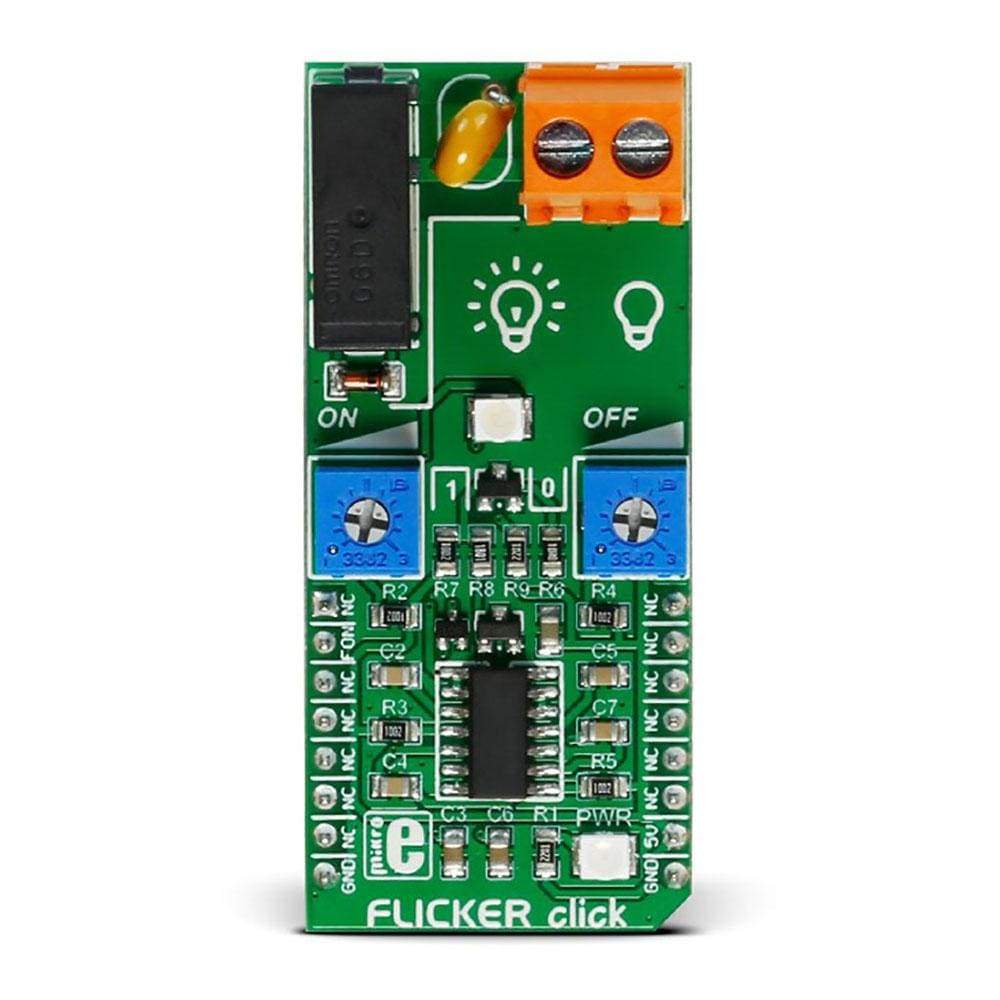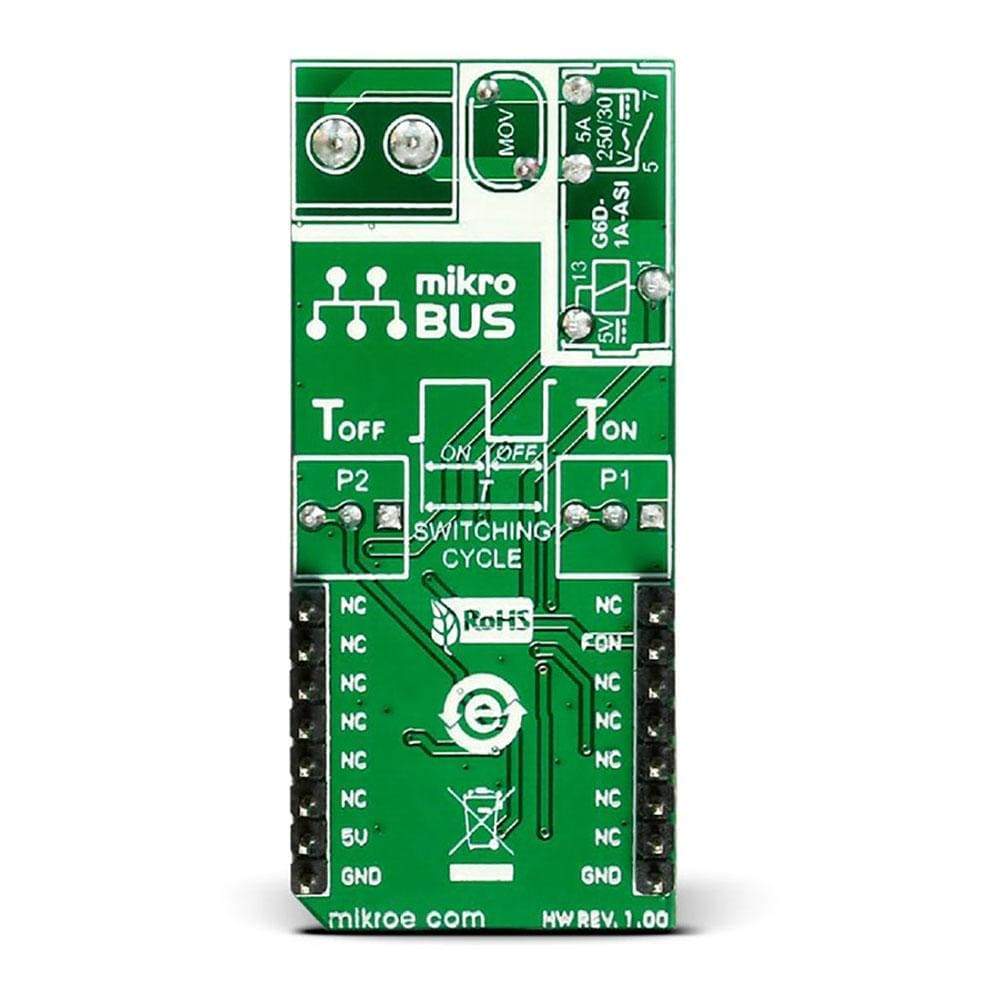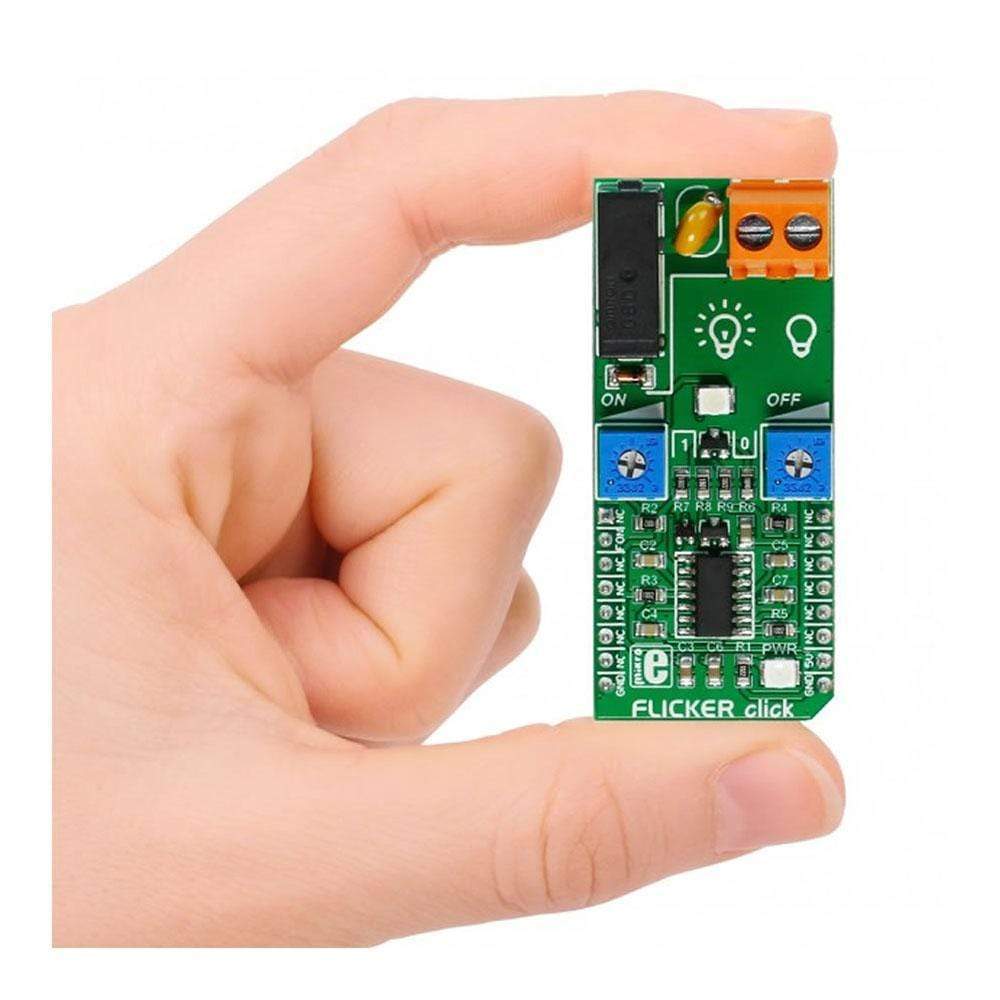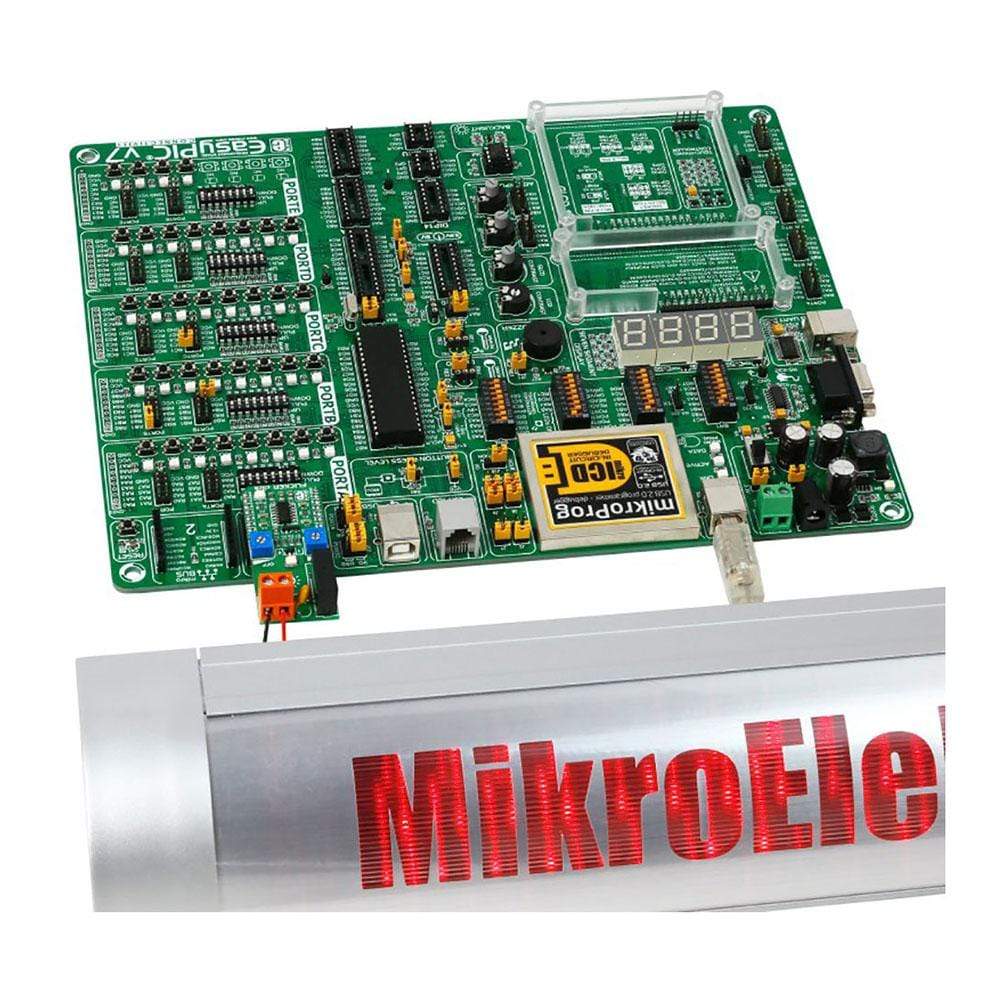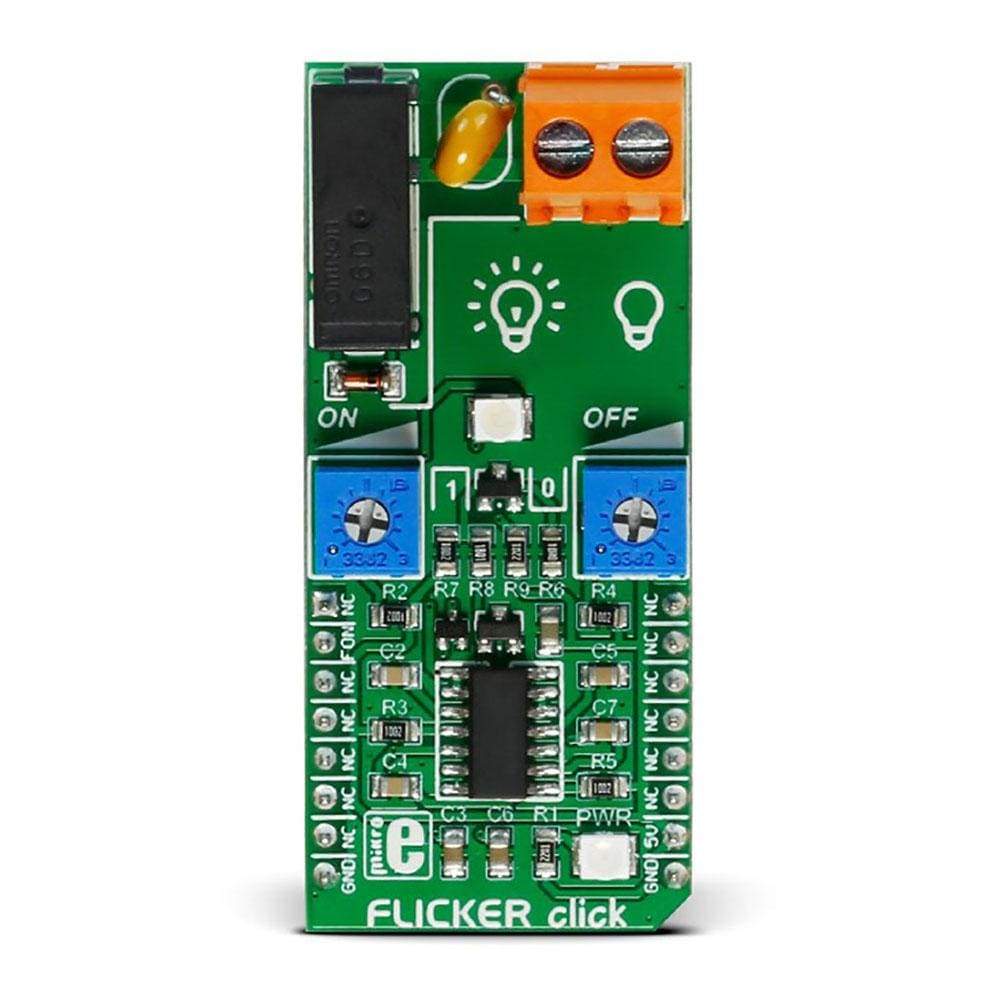
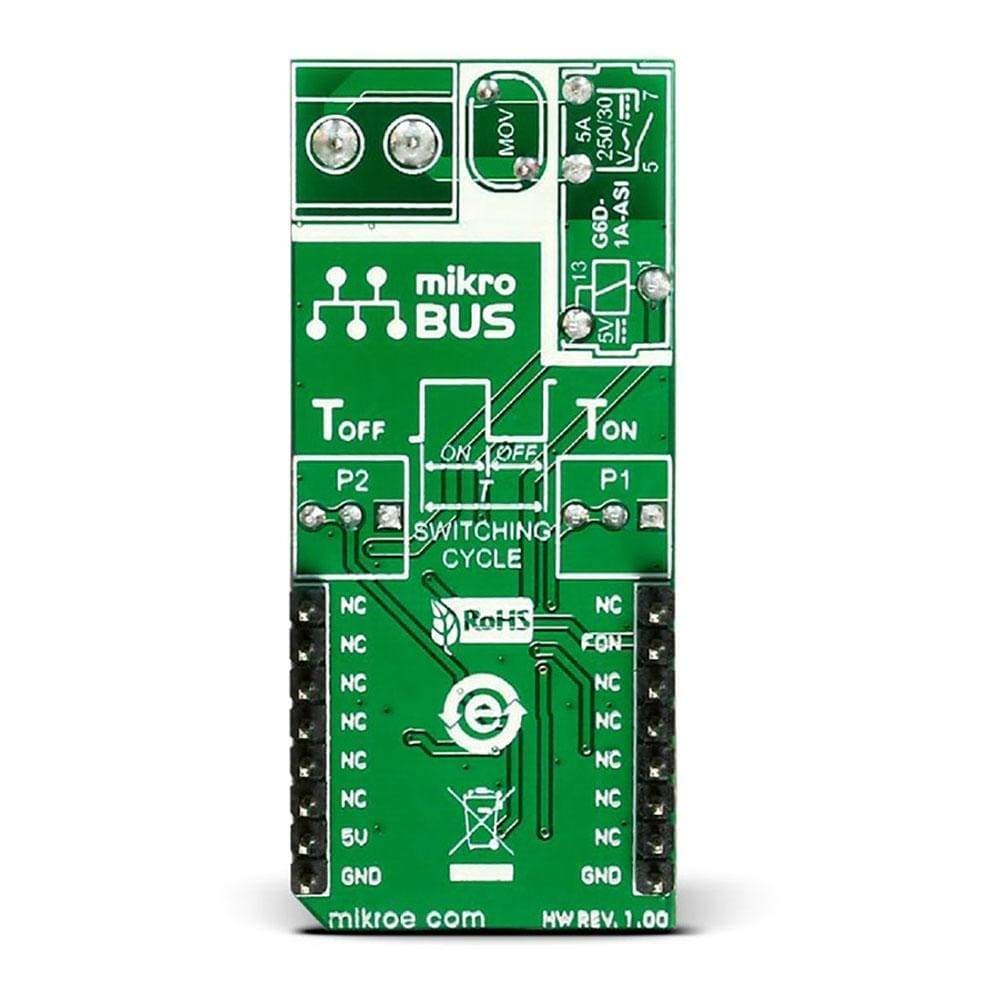
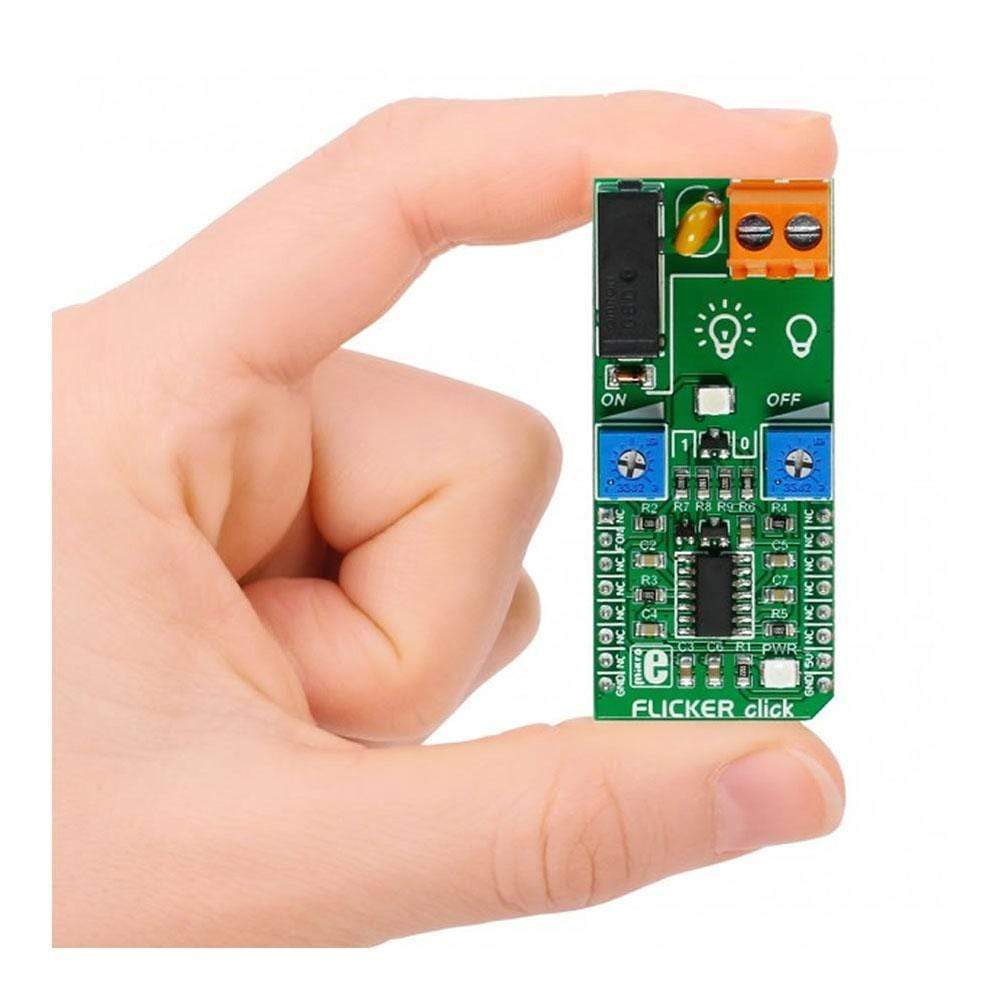
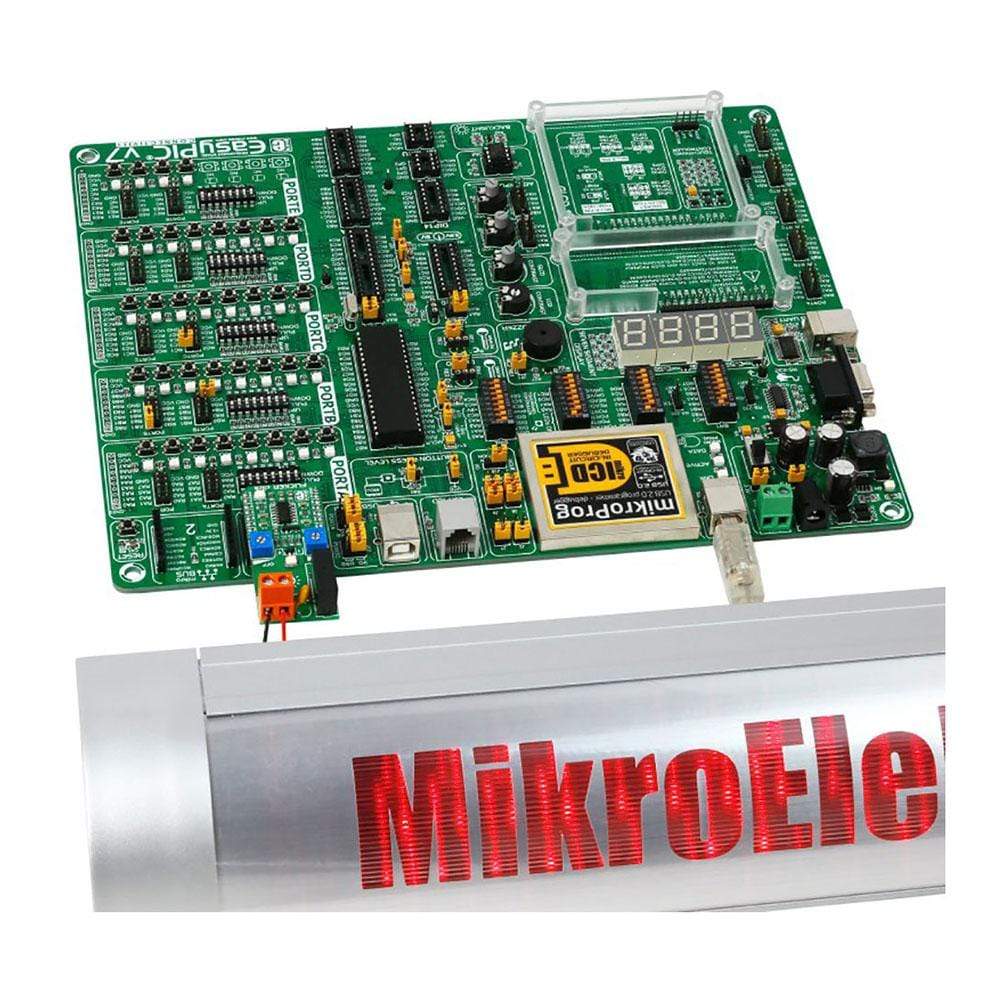
Overview
Thanks to the onboard NA556 dual precision timer from Texas Instruments and the G6D-ASI power PCB relay from Omron, the FLICKER Click Board™ can control loads up to 5A, 250 VAC/30 VDC at a predefined time interval.
The on/off period can last from 0.1 to 6 seconds, which can be set by the two ON/OFF onboard potentiometers. The external load can be connected to the board through the screw terminal. FLICKER Click Board™ runs on a 5V power supply and it communicates with the MCU over the RST pin.
Downloads
FLICKER Click Board™
Thanks to the onboard NE556DR dual precision timer from Texas Instruments and the G6D-ASI power PCB relay from Omron, the FLICKER Click Board™ can control loads up to 5A, 250 VAC/30 VDC at a predefined time interval.
The on/off period can last from 0.1 to 6 seconds, that can be set by the two ON/OFF onboard potentiometers. The external load can be connected to the board through the screw terminal. The FLICKER Click Board™ runs on 5V power supply and it communicates with the MCU over RST pin.
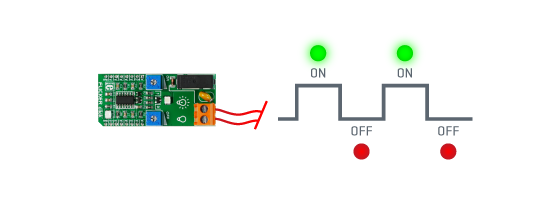
 DO NOT TOUCH THE BOARD WHILE THE EXTERNAL POWER SUPPLY IS ON!
DO NOT TOUCH THE BOARD WHILE THE EXTERNAL POWER SUPPLY IS ON!
Note: The FLICKER Click Board™ has exposed pins/pads. To stay safe take precaution when applying high voltage to the click. The click is to be used by trained personnel only when applying high voltage.
Applications
The FLICKER Click Board™ is the perfect, simple solution if you need to turn a device on and off at specific time intervals, like blinking LED commercials, alarm system lights, or any other signaling lights.
SPECIFICATIONS
| Type | Relay |
| Applications | The FLICKER Click Board™ is the perfect, simple solution if you need to turn a device on and off at specific time intervals, like blinking LED commercials, alarm system lights, or any other signalling lights |
| On-board modules | NA556 dual precision timer from Texas Instruments and the G6D-ASI power PCB relay from Omron |
| Key Features | G6D-ASI power PCB relay, Max. loads up to 5 A, 250 VAC/30 VDC, Min. permissible load 10 mA at 5 VDC, Contact resistance 100 mΩ max |
| Interface | GPIO |
| Compatibility | mikroBUS |
| Click board size | L (57.15 x 25.4 mm) |
| Input Voltage | 5V |
PINOUT DIAGRAM
This table shows how the pinout of the FLICKER Click Board™ corresponds to the pinout on the mikroBUS™ socket (the latter shown in the two middle columns).
| Notes | Pin |  |
Pin | Notes | |||
|---|---|---|---|---|---|---|---|
| NC | 1 | AN | PWM | 16 | NC | ||
| Turns the NE556 on and off | FON | 2 | RST | INT | 15 | NC | |
| NC | 3 | CS | RX | 14 | NC | ||
| NC | 4 | SCK | TX | 13 | NC | ||
| NC | 5 | MISO | SCL | 12 | NC | ||
| NC | 6 | MOSI | SDA | 11 | NC | ||
| NC | 7 | +3.3V | +5V | 10 | +5V | +5V power supply | |
| Ground | GND | 8 | GND | GND | 9 | GND | |
ONBOARD PCB RELAY
Maximum switching capacity of the G6D-ASI PCB relay is 1250VA at 150W. Maximum contact resistance is 100 mΩ.
POTENTIOMETERS
The two potentiometers (P1 and P2) set the switching on and off time.
| Designator | Name | Type | Description |
|---|---|---|---|
| P1 | Potentiometer | Adjusting Ton | |
| P2 | Potentiometer | Adjusting Toff | |
| CN1 | Terminal block | Connector | for connecting the device |
MAXIMUM RATINGS
| Description | Min | Typ | Max | Unit |
|---|---|---|---|---|
| Contact resistance | 100m | Ω | ||
| Operate time | 10m | s | ||
| Ambient temperature | -25 | 70 | C | |
| Operating current | 5 | A | ||
| Operating voltage | 250 | VAC |
| General Information | |
|---|---|
Part Number (SKU) |
MIKROE-2481
|
Manufacturer |
|
| Physical and Mechanical | |
Weight |
0.029 kg
|
| Other | |
Country of Origin |
|
HS Code Customs Tariff code
|
|
EAN |
8606015079356
|
Warranty |
|
Frequently Asked Questions
Have a Question?
Be the first to ask a question about this.

